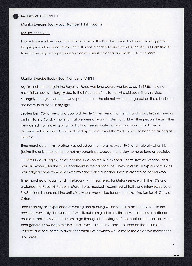Transcript of My life in the RAF
Title
Transcript of My life in the RAF
Description
Transcript of F Dunn's memoir describing life before and after joining the RAF. Includes induction and starting off in the RAF in England and then sea voyage to South Africa and then initial training in Bulawayo, Zimbabwe.
Creator
Spatial Coverage
Coverage
Language
Format
Twenty-three page printed document
Is Part Of
Publisher
Rights
This content is available under a CC BY-NC 4.0 International license (Creative Commons Attribution-NonCommercial 4.0). It has been published ‘as is’ and may contain inaccuracies or culturally inappropriate references that do not necessarily reflect the official policy or position of the University of Lincoln or the International Bomber Command Centre. For more information, visit https://creativecommons.org/licenses/by-nc/4.0/ and https://ibccdigitalarchive.lincoln.ac.uk/omeka/legal.
Identifier
SDunnFT1319229v10002-Transcript
Collection
Citation
F T Dunn, “Transcript of My life in the RAF,” IBCC Digital Archive, accessed July 26, 2024, https://ibccdigitalarchive.lincoln.ac.uk/omeka/collections/document/40049.
Item Relations
This item has no relations.

